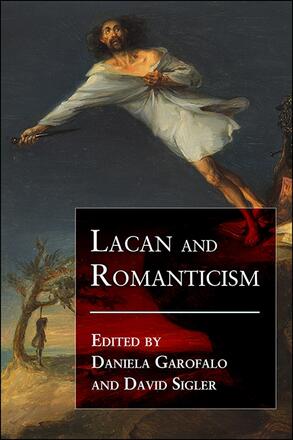
Lacan and Romanticism
Alternative formats available from:
Draws from the work of Jacques Lacan to provide innovative readings of Romantic literature in the long nineteenth century.
Description
Lacan and Romanticism uses the work of psychoanalyst Jacques Lacan to deliver progressive readings of Romanticism by examining canonical Romantic authors such as William Wordsworth, Mary Shelley, John Keats, and Jane Austen, as well as lesser-known writers such as the graveyard poets and Sarah Scott. The contributors develop innovative approaches to Lacanian literary studies, focusing on neglected or emergent areas of Lacan's thought and approaching Lacan's best-known work in unexpected ways. The essay topics include the visible and seeable, war, the death drive, nonhuman sexualities, sublimation, loss and mourning, utopia, capitalism, fantasy, and topology, and they range from the mid-eighteenth through the early decades of the nineteenth centuries. The book reveals new ways of thinking about art and literature with psychoanalytic theory and suggests how theoretical approaches can contribute meaningfully to literary studies in general.
Daniela Garofalo is Professor of English at the University of Oklahoma. She is the author of several books, including Manly Leaders in Nineteenth-Century British Literature, also published by SUNY Press, and Women, Love, and Commodity Culture in British Romanticism. David Sigler is Associate Professor of English at the University of Calgary and is the author of Sexual Enjoyment in British Romanticism: Gender and Psychoanalysis, 1753–1835.
Reviews
"Reading this book may well entice the Romanticist who isn't already engaged in psychoanalytic theory to do so, and the Lacanian scholar—who may have concluded erroneously that Lacan's last word on Romanticism was his criticism of some well-known lines from the Immortality ode—to reconsider the value of returning to Romantic literature and visual culture." — Guinn Batten, author of The Orphaned Imagination: Melancholy and Commodity Culture in English Romanticism